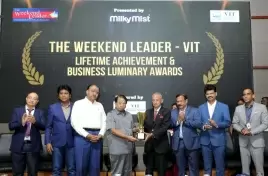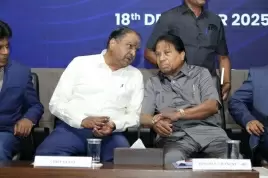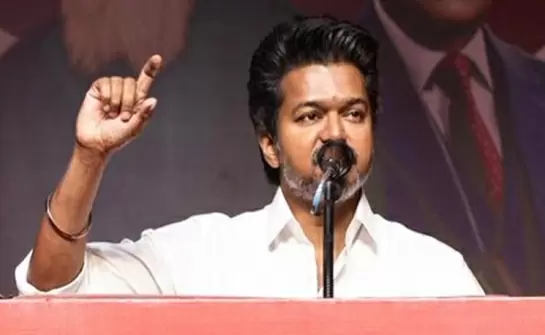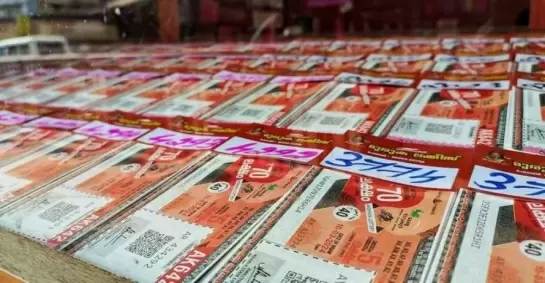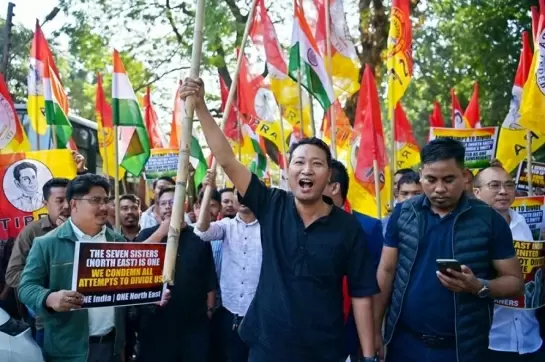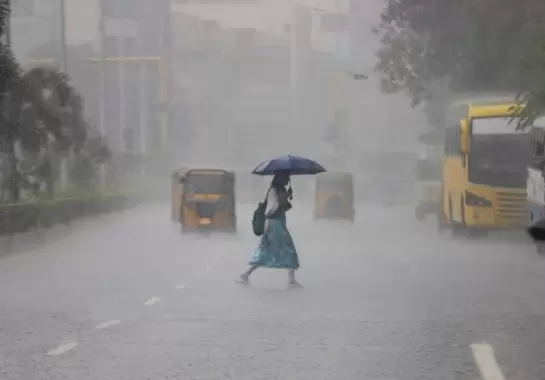Men’s care groups have taken up the cause of children in their community to fight child marriage
14-December-2015
Vol 6 | Issue 50
The young thrive on dreams for a brighter tomorrow. Most aspire to have a comfortable home, a rewarding career and a loving family – and they work hard to put together the pieces of this perfect life, bit-by-bit.
But what if one never even got a decent shot at fulfilling one’s ambitions or breaking free from the cycle of illiteracy, early marriage and poverty? Raj Kumar, in his mid-forties, is one of those unlucky men, who had to leave school in his teens to earn a living.
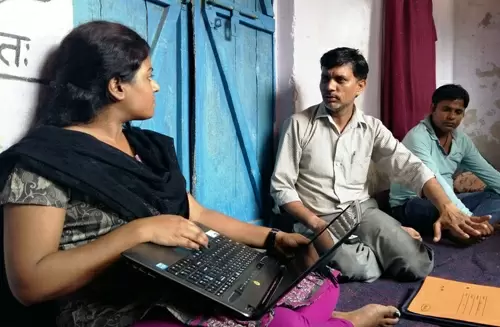 |
|
Raj Kumar Paras, 39, from Barakhamba colony, a slum settlement on the outskirts of Agra, Uttar Pradesh, is an activist who creates awareness against underage marriages (Photo: Chetna Verma\WFS)
|
And as if that was not bad enough he had to get married before he was ready to take on the responsibility of a wife and then children that followed almost immediately.
“This is one reason why I have zero tolerance towards early marriage. It has devastating consequences for both girls and boys. There was no one to save me but if anyone informs me about an underage alliance in our neighbourhood now I make every possible effort to dissuade the family from going through with it. This regressive social custom has robbed many of their childhood,” shares this resident of Nai Abadi, a slum settlement on the outskirts of Agra, Uttar Pradesh.
Of course, Raj Kumar wasn’t always the anti-child marriage crusader that he has become today. It was an intervention involving men and boys in his community, initiated by World Vision India (WVI), an international humanitarian agency working on gender and child rights issues, which enabled him to first recognise and, later, brainstorm to find workable solutions to some of the gravest social problems that afflict his lot.
In several impoverished localities around Agra, World Vision has catalysed the formation of Men Care groups that have emerged as a strong force against gender injustice meted out in the name of ‘tradition’.
According to Karoline Davis, Head-Gender and Development, WVI, “Around 24 all-men groups have been formed in different traditional communities of Agra and regular discussions are held to talk to them about existing gender stereotypes and inequalities within their families and communities. The idea is to address these issues from within by involving the men because it is they who are often the perpetrators.”
Febamol, World Vision’s Gender and Development Coordinator in Agra, adds, “Generally, women in these localities have no real decision-making powers and are deprived of even their basic rights – to education, sanitation, healthcare and safety, among others.
“Whereas we had started out by creating women’s groups in a bid to empower them we realised that it would not work till the men were not on board. In 2013, we hand-picked 60 men who showed an inclination towards this change, and they, in turn, set up their own groups.
“By redefining the parametres of masculinity, the Men Care volunteers tackle many problems that emerge out of a rigid patriarchal social set-up. Child marriage is one such serious concern.”
Not very long ago, Ram Kumar, who heads the Nai Abadi group, had the chance of making a real difference in the life of Rajkumari, 16. Last year, this daughter of a rickshaw puller, Ashok, and daily wager, Munni Devi, went through a difficult phase – and it all started after her elder sister, Madhu’s marriage was fixed in a family from a neighbouring community.
What ought to have been a joyous occasion for the teenager became a total nightmare once relatives told her parents that it would be more economical if both Madhu, 23, and Rajkumari got married in the same ‘mandap’ (marriage altar).
As they had already taken a huge loan of Rs two lakh, a sum they could ill-afford, the duo decided in favour. “This was the easiest way to save on marriage expenses and dowry. Since her father drinks heavily we were not certain of his health and wanted to marry her off while he was still around,” says Munni.
In an attempt to provide Rajkumari “security”, they overlooked the fact that their actions were illegal and would expose her to emotional and physical trauma. The only good they did was to convince her prospective in-laws to let her stay on till she turned 18.
Rajkumari, who was not happy with her nuptials, says she agreed only because of her father’s poor health. “I did not have any option. At least, none that I knew,” she points out. Things, unfortunately, did not go as planned. After the ceremony, her in-laws started pressurising Ashok and Munni to send Rajkumari with them. They had almost agreed to their wishes when news reached Ram Kumar.
Appalled at the marriage and the impending ‘gauna’ (bridal send-off) he decided to speak to Ashok and Munni and counsel them against it. “Like most parents of the bride, they lacked the confidence to stand up to the groom’s family. They felt this would have an adverse impact on their elder daughter’s relationship.
“So we told them about the laws they were flouting. But, more importantly, we assured them that we would stand by them when they inform Rajkumari’s in-laws of their decision,” he recalls. Fortunately, everything has worked out for the best.
These days, Rajkumari is busy doing a beautician’s course. She has grand plans of starting her own small salon one day and though her mother knows that this would require a lot of money she encourages her wholeheartedly. “Raj Kumar bhaiya made us realise that it is essential to let girls follow their dreams instead of just marrying them off. Rajkumari can take care of herself so why should she end up like me?” says Munni.
Had this incident occurred three years back, Rajkumari would have been married and already become a mother. Child marriages are quite common in Uttar Pradesh (UP). In fact, as per the Census 2011, 17 million children between 10 and 19 years in India are married and, of these, the highest number – 2.8 million – is in UP.
Elaborating on the reasons that drive this practice, Pramod Kumar, 42, the only graduate in the Nai Abadi group, says, “Over 95 per cent of the men in this area are involved in shoe-making and have no fixed earnings. Generations have worked in small, suffocated homes making little money. So, girls, in particular, are married off as soon as possible because it is the easiest way to get rid of their responsibility.”
Raj Kumar Paras, 39, from Barakhamba colony, admits that “previously, our energies were spent in arranging money – either to make ends meet or pay for marriage. Our horizons have widened considerably and we have begun to comprehend the implications of early marriage, domestic violence, illiteracy. We are there for anyone who needs our backing to fight these problems and mentor the younger boys to follow our lead.”
Undoubtedly, the positive influence of the Men Care groups has been widespread. Despite immense pressure, Bilawar Sagar, 19, from Rahul Nagar, has neither given up his studies yet nor has he consented to marriage.
Moreover, he has been instrumental in stopping the union of a little girl from his neighbourhood with a 14-year-old boy from Rajasthan. “The ‘baraat’ had already arrived from Dhaulpur but I wasn’t deterred. Ten of us from the Men Care group went and told the respective families that this was against the law and that we would inform the police. The groom’s family created a furore but we didn’t back down. In the end, we triumphed,” he narrates, his voice ringing with pride.
The Men Care groups have truly invested a lot of time and energy into curbing child marriages and their network always remains alert to this threat. “We are still fighting poverty but at least we have a sense of purpose and we feel good about ourselves – that was missing from our lives beforehand,” concludes Raj Kumar. - Women's Feature Service




